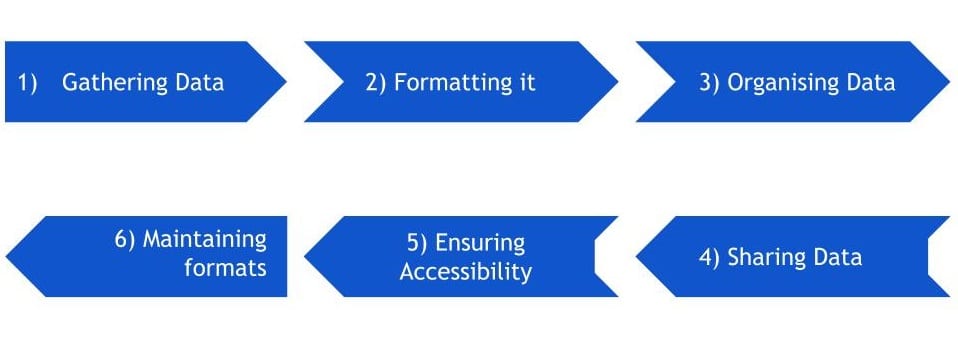Data Socialisation, one of the key concepts and the natural progression in the use of Big Data, has been generating a lot of buzz off late. The term, which can be defined as “the next step in the evolution of data accessibility and self-service analytics” — is a new way for organisations to think about and interact with their data, as well as their employees.
What Is Data Socialisation:
The information which most data scientists use to create, evaluate, theorise and predict the results or end products, often gets lost. The way data trickles down to data scientists in big organisations — from departments, sub-divisions, branches, and finally the teams who are working on the data — leaves information that is sometimes incomplete or unorganised. The data scientists are therefore left with bits and pieces of scattered information that needs more time to put together, than to evaluate.
This is where Data Socialisation comes in.
The method of organising, sharing and making available the information in an efficient manner to all the employees in an organisation is the cornerstone of this method of sharing corporate data.
Data Democratisation Vs Data Socialisation:
The key difference between Data Democratisation and Data Socialisation lies in the end user groups. While the former revolves around sharing information in a digital format to the average end user, the latter is merely sharing information in an accessible format within an organisation.
Data Socialisation is the integration, exploration and sharing of traditional as well as new type of digital data within an organisation, so as to make it available to all employees for smarter work and decision-making.
This talk by American technology expert Darryl D McDonald throws some more light on the subject:
Data Socialisation Vs Data Governance
The socialisation and governance of data go hand-in-hand. A sound Data Socialisation program includes Data Governance — a regulating body or council, a defined set of procedures, and a plan to execute those procedures. Archiving, backup, storage and coding also form a part of the Data Governance system. Finally, if the data used in an organisation is of a sensitive nature, Government rules and audit procedures may also apply. Unless there are a set of rules and defined methods of execution, pilferage of data could be possible.
The Data Socialisation Model:
Data socialisation model is the next natural step that comes after data democratisation. Companies using a data socialisation platforms can leverage ratings, comments, and discussions, and give everyone in the organisation the key to the right data.
Here’s the basic model that one can follow to adopt Data Socialisation in any organisation:
Why Organisations Should Use Data Socialisation:
“Organising and using data requires creating and managing a sort of platform that unites self-service visual data preparation, data discovery and cataloging, automation and governance features, along with important attributes common to social media platforms — such as user ratings, recommendations, discussions, comments and popularity. This information thus makes it easier for the data scientists to use, manage and visualise,” blogs Michael Morrrison for IBM.
Having a structured platform to share and use data can reduce the burden for data scientists. Digging through scores of PDF files, Excel sheets — or worse, photographs, can be a full-time, exasperating job in itself.
This need for bigger organisations has given birth to a plethora of analytics and data visualisation tools that could be used for sharing data.
“As business users grow frustrated that they can’t get answers when they need them, they may give up waiting and revert to flying blind without data. Alternatively, they may go rogue and introduce their own analytics tool to get the data they require, which can create a conflicting source of truth. In either scenario data loses its potency,” wrote Brent Dykes wrote for Forbes.
The Future Of Data Socialisation:
Data Socialisation is now seen as a new solution to the two decade-old Business Intelligence domain. It is now being hailed as the missing piece in the democratisation puzzle where non-IT users are armed with easy-to-use BI tools with basic analytics capabilities.
In short, Data Socialisation helps data scientists, business analysts and even novice business users across a company to search for, share and reuse prepared, managed data to achieve true enterprise collaboration and agility.






















